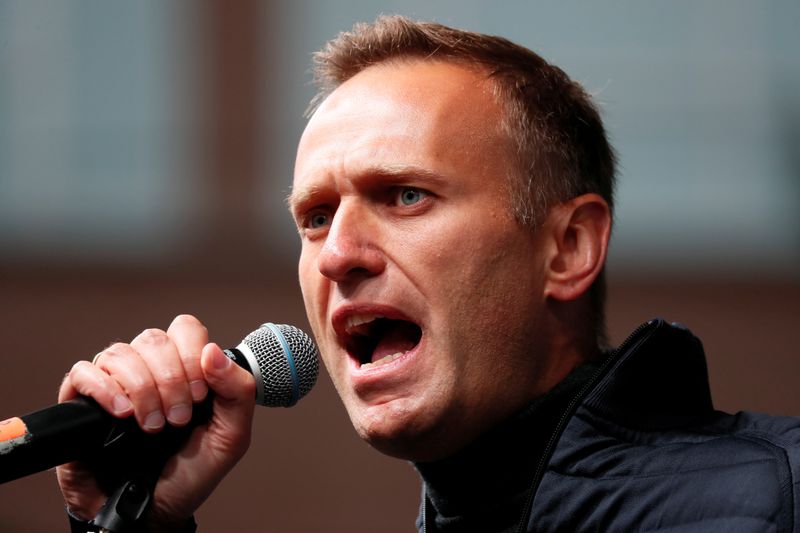BERLIN (Reuters) - Russian opposition politician Alexei Navalny has made further progress in his recovery after what Germany said was poisoning with a Soviet-style Novichok nerve agent, and is able to speak again, Der Spiegel magazine reported on Thursday.
The Kremlin critic is being treated in Berlin's Charite hospital after falling ill on a Russian domestic flight last month.
Germany says Navalny was the victim of an attempt to kill him and has demanded an explanation from Russia. Moscow has said it has seen no evidence that Navalny, 44, was poisoned.
Der Spiegel magazine said Navalny's police protection had been stepped up in the expectation that he would be receiving more visitors as his condition improved.
"Der Spiegel and Bellingcat understand that Navalny can speak again and can likely remember details about his collapse," the magazine wrote, crediting its investigative website partner. "His statements could be dangerous for people behind the attack."
There was no immediate comment by the hospital treating Navalny. A Berlin police spokesman had no comment. Navalny's spokeswoman, Kira Yarmysh, tweeted that "the story is exaggerated and contains many factual inaccuracies" in apparent reference to the Spiegel piece.
The Navalny affair has driven tensions between Russia and the West to new heights, with some Western governments believing Navalny was poisoned by Russian security services with top-level backing.
U.S. Secretary of State Mike Pompeo said on Wednesday there was a "substantial chance" his poisoning was ordered by senior Russian officials.
Berlin faces calls for a sharper response to the poisoning. Some opposition politicians have called for the Nord Stream 2 gas pipeline from Russia to Germany, a Kremlin flagship project, to be cancelled, even as it nears completion.

Italian Prime Minister Giuseppe Conte was quoted on Thursday as saying Russian President Vladimir Putin had told him he would set up a committee to investigate Navalny's case and "was ready to collaborate with the German authorities".